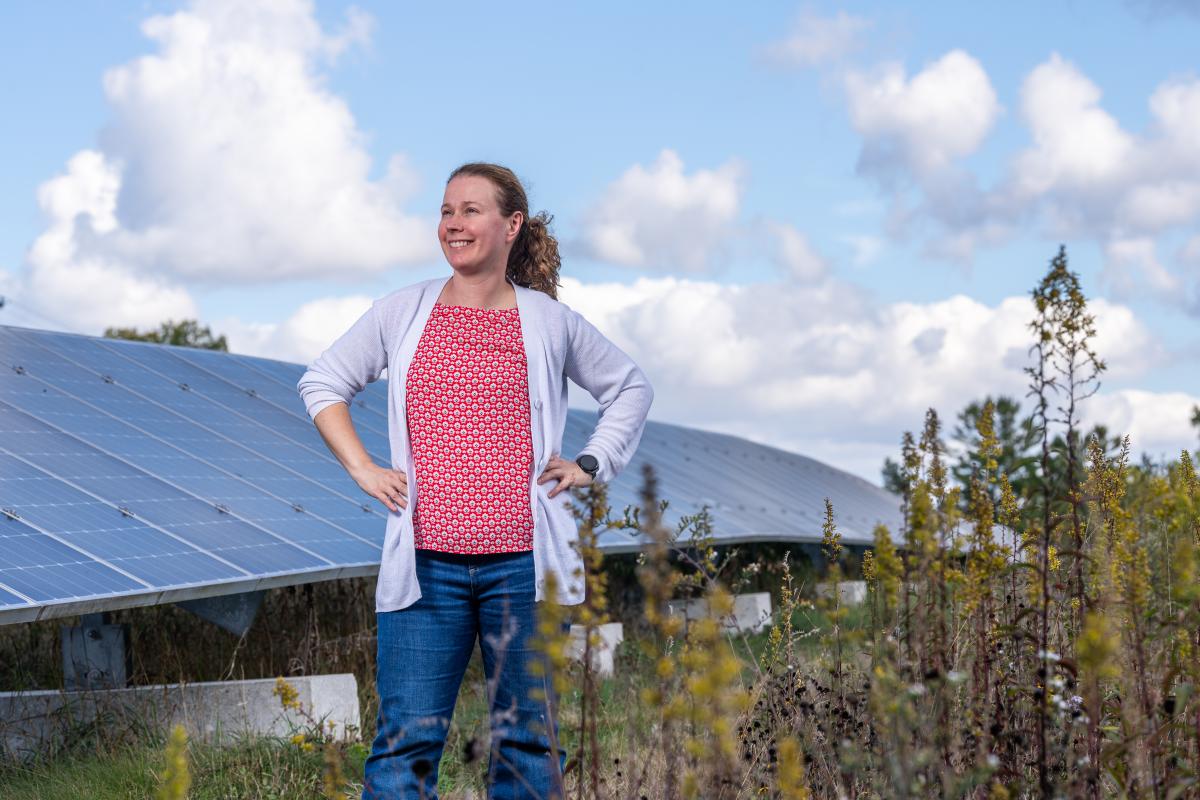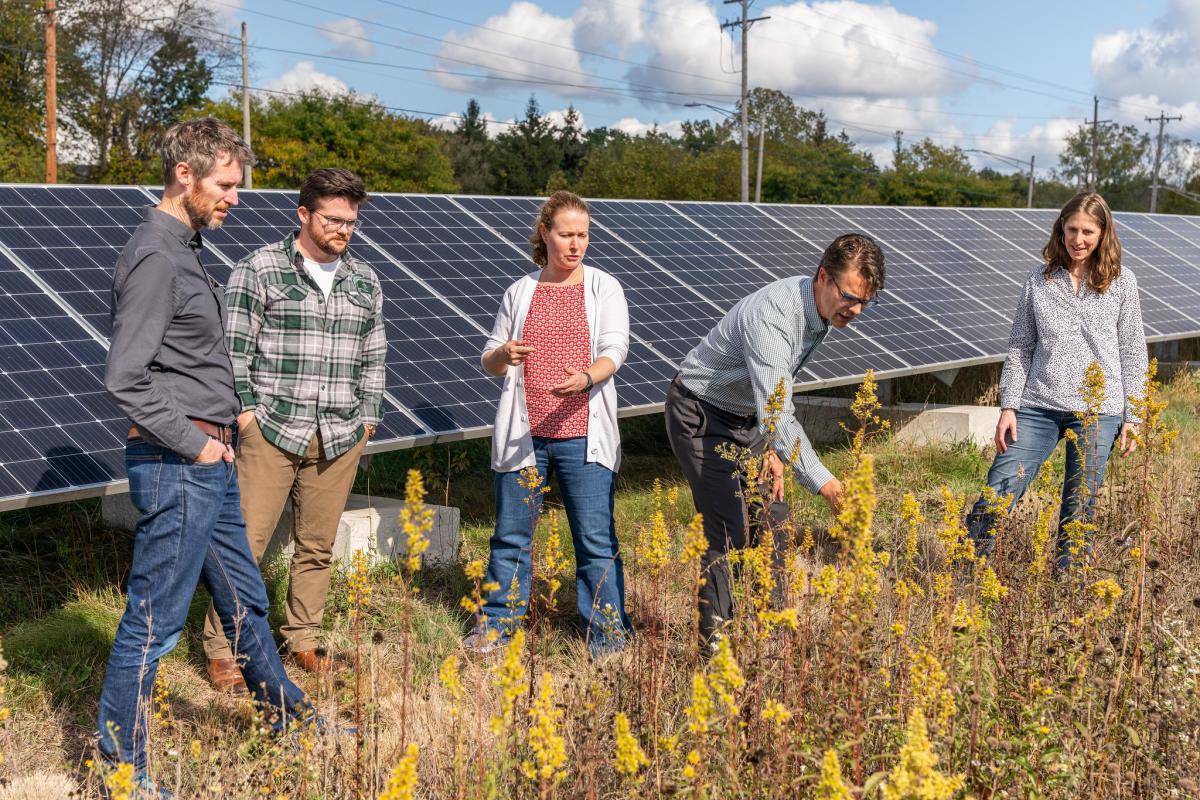
Michigan State University scientists plan to build a first-of-its-kind outdoor lab to study how solar panels placed alongside crops could save water, improve soil health and support ecosystems, all while boosting farmers’ bottom line and preserving farm production.
Annick Anctil, associate professor of civil and environmental engineering, is part of an interdisciplinary team working on a five-year $3.6 million National Science Foundation grant to study existing solar parks. They will learn how the panels affect the soil and ecosystems surrounding them. Then, the team will install a small array of 30 solar panels near corn and soybean fields to teach farmers, scientists and other stakeholders how to repurpose underproducing portions of their fields for solar energy.

The initial lab, set for the W.K. Kellogg Biological Station, or KBS, will be small, but the group envisions eventually building a world-class 15-acre facility. Bringing this concept to life will help farmers visualize what this method could look like in their fields and how it could make farming more sustainable as costs rise.
Learn more about the project and the cross-disciplinary team of MSU scientists bringing broad perspective to this research.
Original story by Bethany Mauger courtesy of MSUToday.
MSU College of Engineering Media and Public Relations page